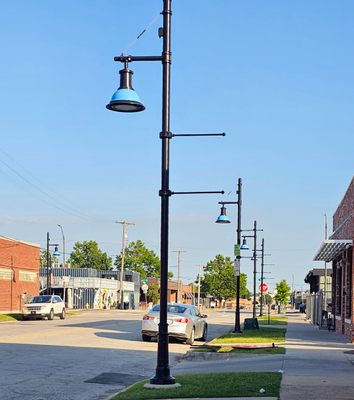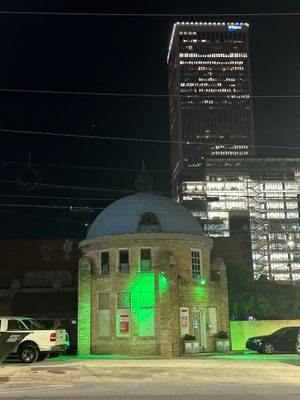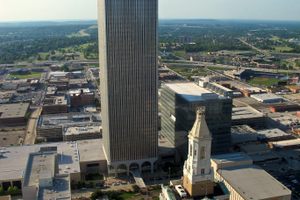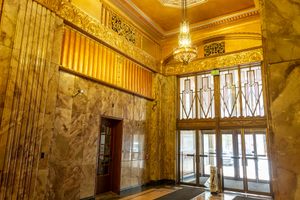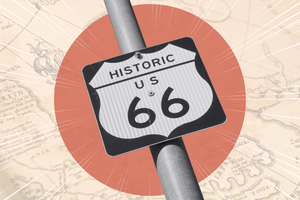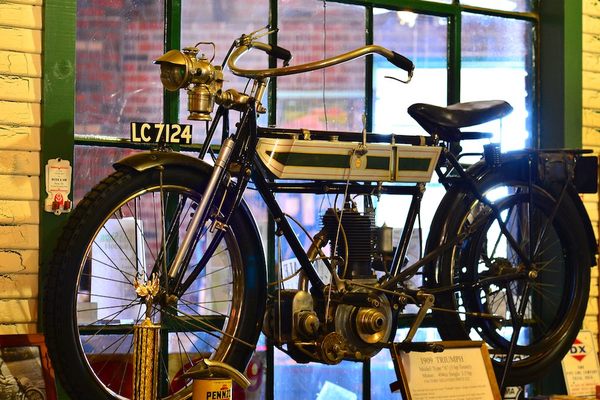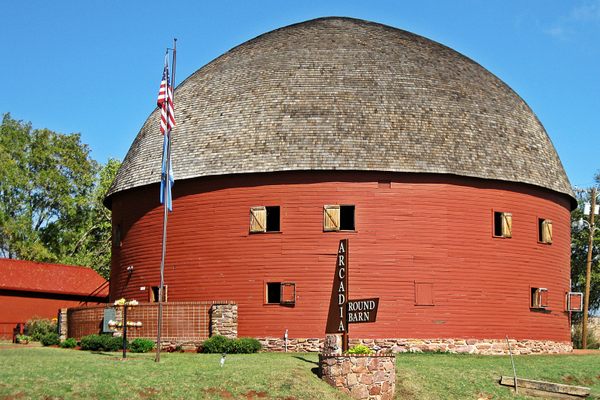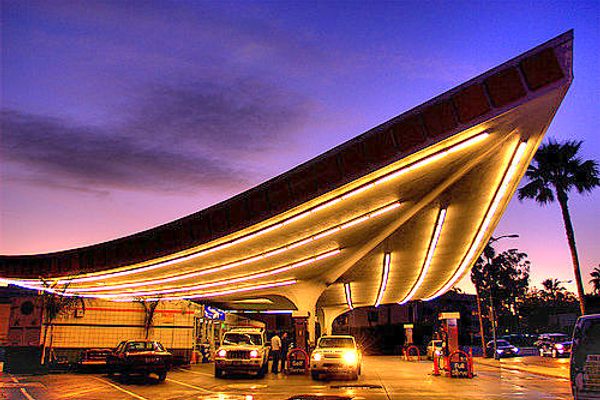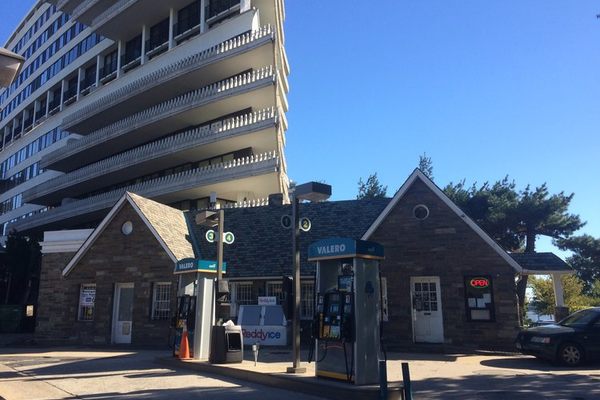About
In the 1920s, Tulsa, Oklahoma, booming with oil money, built a thriving central downtown of glimmering gold-hued Art Deco buildings unlike those seen anywhere in the American West. However, one of the most striking buildings of this era was not a skyscraper at all, but rather a gas station designed to resemble the Hagia Sophia. A century later, this structure remains the center of Tulsa’s arts and nightlife scene, and the symbol of this offbeat and hardscrabble prairie city’s cultural revival.
The Blue Dome began its life as the White Star Service Station, designed by local architects Lawrence Blue and Fred L. Knoblock. The gas station was opened in January 1925 by Robert Chastain of Chastain Oil Co. At that time, it was Tulsa’s first full-service 24-hour filling station, with a service attendant who lived inside the dome. The next year, Route 66 opened, and the station's distinctive look made it a popular landmark until the route was adjusted in the early 1930s.
In the 1950s, the gas station closed its doors. The Blue Dome became the home of Veterans Bar until 1999, and has also hosted an antique store and other business. Currently, the Blue Dome is in private hands, owned by Jo and Chris Armstrong of the neighboring Arnie’s Bar.
Although it is no longer open to the public, the Blue Dome has lent its distinctive name and visage to the entire neighborhood, now known as the Blue Dome Historic District. The dome has hosted art festivals and pop-up shops, and the bars and shops in the area frequently reference its appearance. Street lights, planting pots, and other civic fixtures now bear the color and shape of the iconic dome.
Related Tags
Know Before You Go
The Blue Dome is private property and is closed to the public, however, the exterior is accessible and visible from the street.
Community Contributors
Added By
Published
September 22, 2023



